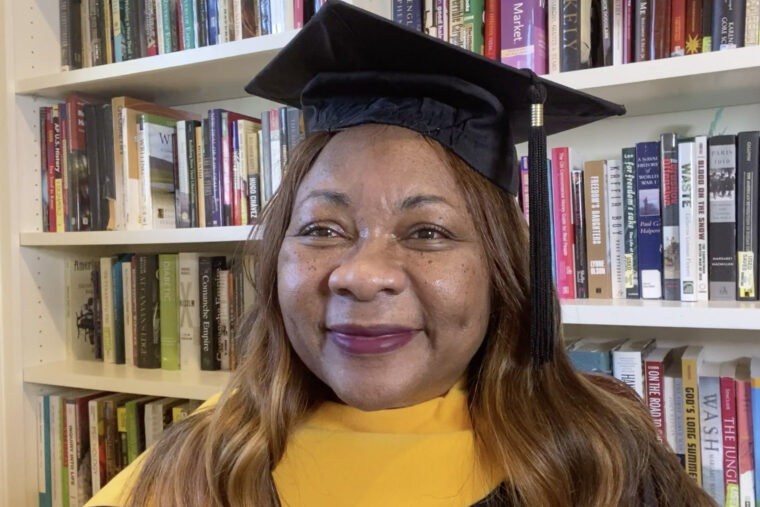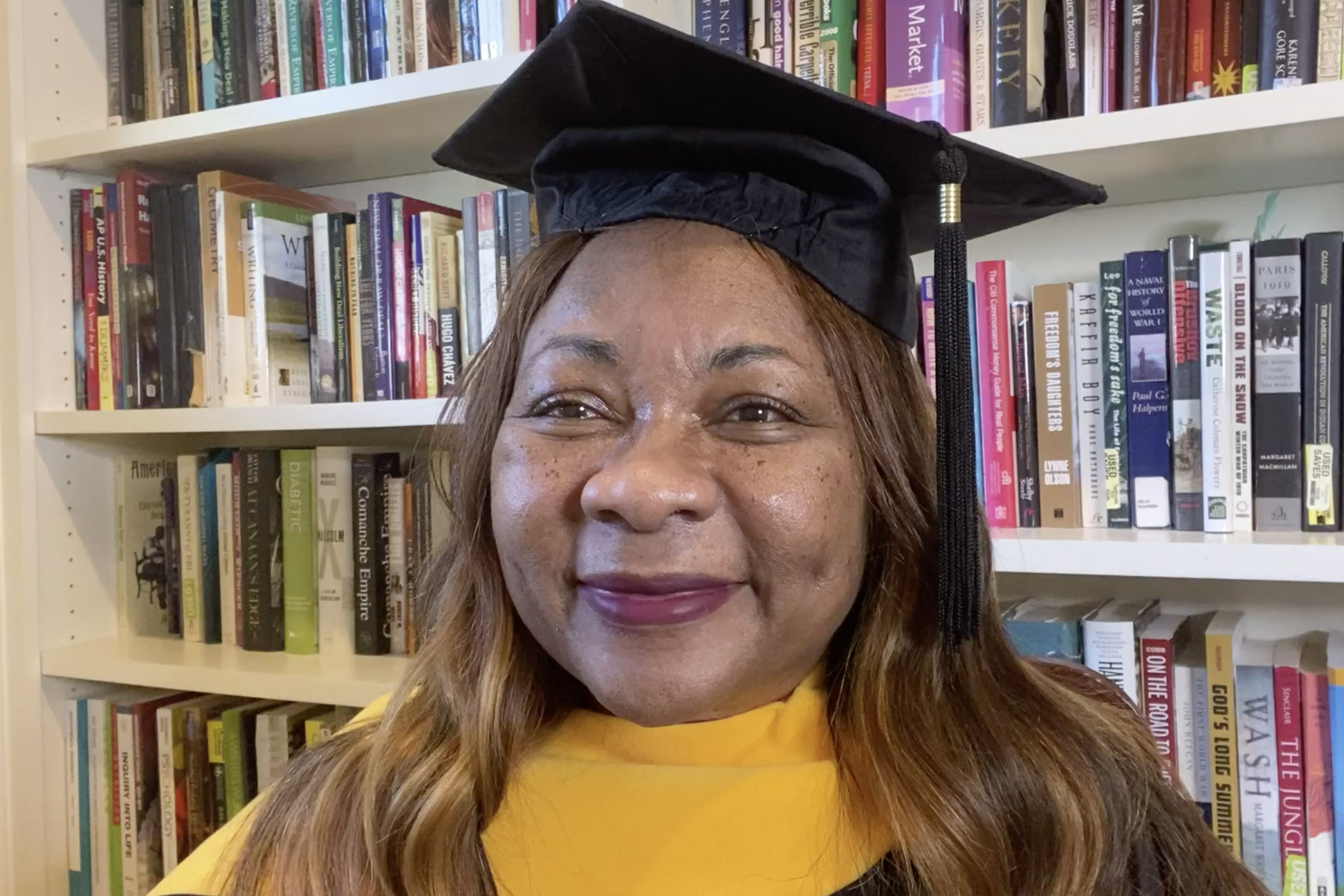Flowers Speaks about “Listening,” Environmental Justice at 2021 Commencement


After being named a 2021 recipient of Wesleyan’s honorary doctor of science degree, Catherine Coleman Flowers delivered a pre-recorded speech thanking the University for the honor and exhorting Wesleyan’s Class of 2021 to go forth and “quickly dismantle the historical and structural inequities that have existed in this country since its inception.”
Flowers, a native of Lowndes, Alabama, gained national recognition through her tireless efforts to bring attention to failing water and waste sanitation infrastructure in rural areas (beginning with her hometown), in so doing highlighting structural inequities that perpetuate health and socioeconomic disparities. For her work, Flowers was awarded a 2020 MacArthur “Genius Grant” Fellowship, and was recently appointed to the Biden-Sanders Task Force on Climate Change.
In the 2018 documentary series The Accidental Environmentalist, Flowers explained her activism by saying, “I’m an environmentalist because you cannot talk about the environment and not talk about health; you can’t talk about the environment and not talk about how we treat nature. Part of environmental science is knowing about waste water, and how you treat it. And how it impacts the environment, how it impacts the water bodies. All of that [is] connected. . . . Some people think you’re only an environmentalist if you care about polar bears, but if you care about people, if you care about land, if you care about God’s creation, you’re an environmentalist. And I’m very very interested in what we do for seven generations to come in terms of leaving a perfect place for our children to live.”
As the founding director of the Center for Rural Enterprise and Environmental Justice, an Alabama-based policy and advocacy organization devoted to addressing the root causes of poverty in the state, Flowers is committed to developing multidisciplinary, grassroots solutions and models that can be replicated in rural communities throughout the country.
In her Commencement remarks, Flowers touched on these themes, stressing the importance of “listening” and recognizing members of the community as invested experts in devising solutions to the problems that affect them.
A transcript of Flowers’s remarks is provided below:
I would like to thank the Board of Trustees of Wesleyan University and President Roth for bestowing this honor upon me. I will wear it proudly.
To the graduates of 2021, I have high hopes for you because I feel that you will do something that we have never done before, which is to help and quickly dismantle the historical and structural inequities that have existed in this country since its inception.
I also feel that you will be taking with you many of the principles that we see in environmental justice as we work in communities and you work in communities across the country and around the world. One of the most important things that you can take with you, other than the skills that you’ve learned at this illustrious university, is the ability to listen.
One of the reasons we have so much division in this country is because we rarely listen. Instead, we go into communities with answers without really understanding the problems, and not talking to the experts that are from each and every one of these communities.
Even in the work that I do, I would never have been in a position to receive any of these honors had I not listened to people in Lowndes County, Alabama. They were actually the experts. They were the experts because they lived in the community.
So, with all of the knowledge that you’ve learned, when you go into a community, ask the people what they need and what they want, and let them lead. What you do is provide assistance and help them to find the solutions that they themselves have identified. That is what’s missing in our political discourse today: the ability to listen, to respect the knowledge of local people and people that live and have lived in those communities that we wish to serve.
So I have high hopes for you and I want you to also keep in mind that whatever decisions you make, whatever choices you make, know that we must have a healthy planet and leave something in place that will benefit seven generations to come. Go get ’em, Class of 2021!
Thank you.

